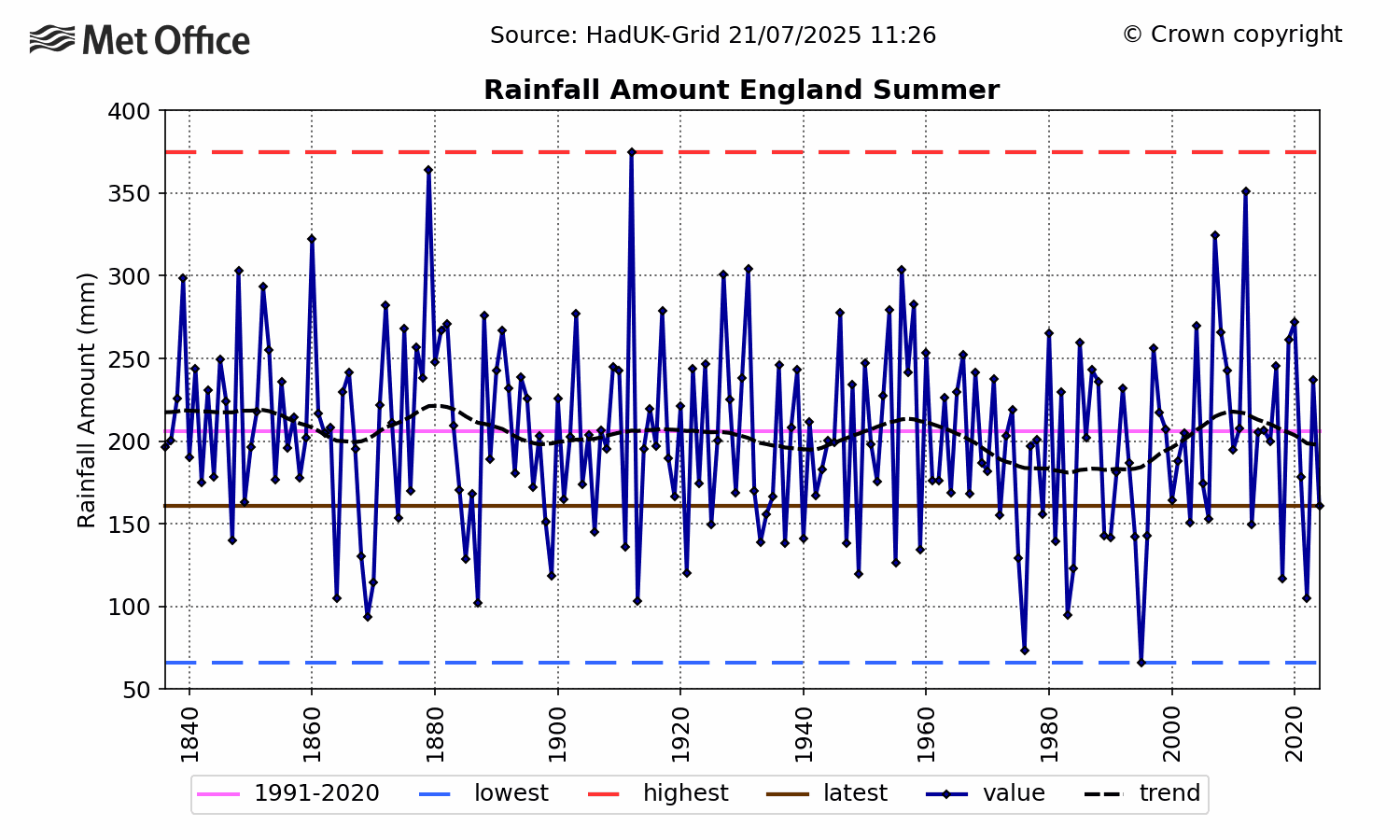By Paul Homewood
Apparently, some species of bees are in decline, and guess what, it’s because of climate change!
Many species of bee are on the brink of extinction in parts of the UK – and some types have been lost entirely, a report has found.
Climate change, habitat loss, pollution and disease are threatening the pollinators, the analysis of 228 species concluded.
It discovered that 17 species were regionally extinct – including the Great Yellow Bumblebee, the Potter Flower Bee and the Cliff Mason Bee – with 25 types threatened and another 31 of conservation concern.
The bee’s pollinating services are worth £690m a year to the UK economy.
Published on World Bee Day, the ‘Bees Under Siege’ report by WWF and Buglife recommends a number of conservation actions to help reverse declines:
- Ensure that coastal management plans protect coastal habitats and promote the management of sea walls
- Safeguard wildlife-rich brownfield sites and promote beneficial management
- Identify opportunities to connect disjointed habitat fragments and promote coordinated management between landowners and landholdings
- Local authorities can work with and support local communities in urban areas to restore and create new habitats
- Ongoing survey and monitoring of bee populations
- Maintain and increase awareness, advice, support and funding for practical delivery projects.
- The report also called on the new Westminster Environment Bill to be “ambitious enough” to develop a nature recovery network for bees.
The WWF, who jointly wrote the report, acknowledge that habitat loss is the major factor, but play the climate card in their introduction on their website:
https://www.wwf.org.uk/updates/bees-feel-sting-climate-change.
This account is absurd, and is not even mentioned in the actual report itself. But, just for the record, these are the actual facts:
Summer Droughts/ Prolonged Flooding

Cold Springs

https://www.metoffice.gov.uk/climate/uk/summaries/actualmonthly
Coastal Storms
https://rmets.onlinelibrary.wiley.com/doi/10.1002/joc.5798
As for the actual report itself, which can be seen here, the Summary only makes one solitary mention of the word “climate”, and this only relates to future threats:
This is in strong contrast to the Foreword, which is essentially the political statement written by the two CEOs:
And when we delve into the detailed report, climate change is barely mentioned at all, other than as some sort of unquantified future threat.
Most of the above highlights are about future threats, for which there is little evidence. All that they can come up with is climate change is widely predicted to increase extreme events such as summer droughts, flooding and storms.
As for losing synchronicity, when plants flower earlier than normal, a look at the climate data shows that annual variations in spring temperatures throughout the record overwhelm long term trends, which in any event have levelled off in the last decade or so:

https://www.metoffice.gov.uk/climate/uk/summaries/actualmonthly
When they look at current patterns, about the only effects of climate change they can find appear to be the spread of the range to the north and west, along with the introduction of bees from mainland Europe. Hardly apocalyptic!
The Independent article mentions that 17 species have gone extinct regionally, but as the report itself states, most were last recorded prior to 1950!
There are also said to be 25 species considered as threatened in the East of England.
A word search for “climate” in this section of the report again brings up a number of future potential threats, but as for current population trends, most references to climate mention increasing range.
The only negative comment is about this little fellow:
Evidently the little blighter is faring pretty well over the border, even if it finds East Anglia too hot!
If this report was an advert, it would be taken down by the Advertising Standards Authority, because it does not contain what it says on the can.
There is little wonder that bees are struggling when we wipe out their habitat, get rid of their food and spray the countryside with pesticides.
Yet remarkably it turns out that most of the damage was being done a century ago.
As for climate change, even the report itself admits that it has had very little negative effect, and instead been a positive boon in many cases.
But you did not really expect the WWF to tell the truth, did you?














